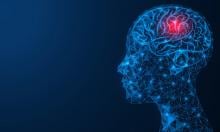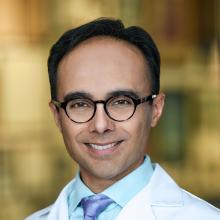
Member Prices
Neurosurgical treatments for neurological and psychiatric disorders have been used for decades in patients refractory to non-surgical therapy. Deep brain stimulation (DBS) in particular has risen to the forefront of the neurosurgical armamentarium. The procedure consists of placing electrodes (typically one bilateral pair) into a specific region of the brain and connecting them to a pacemaker-like stimulator implanted under the skin, typically in the upper chest. DBS is a mainstay of treatment for movement disorders such as Parkinson’s disease and essential tremor. Given its success for those disorders, DBS has been applied to a number of other indications, including treatment-resistant depression (TRD).
This webinar provides an overview of the history of DBS for TRD, focusing on the last 10 years of effort. During this time, there have been a number of open label and randomized controlled trials that have shed light on this therapy. The webinar also discusses current trials in this field.
Learning Objectives:
- Describe principles underlying DBS therapy, including current and emerging indications
- Enumerate criteria important for the evaluation of candidates for DBS for TRD
- Identify promising features of current trials of DBS for TRD













